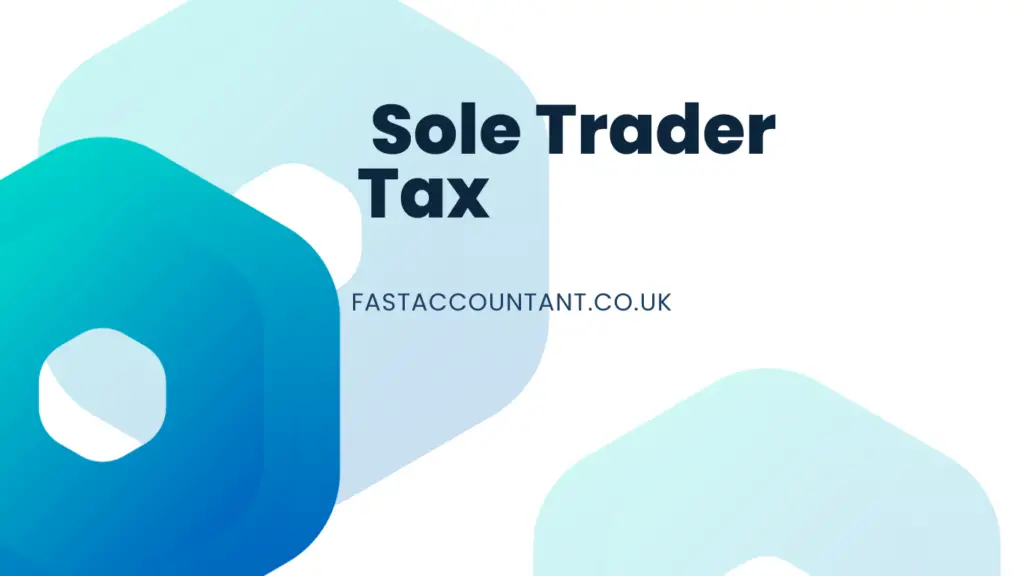
In the intricate world of taxation, it is crucial for entrepreneurs to comprehend the sole trader tax rate. The sole trader tax rate refers to the percentage of income that individuals who operate their businesses as sole traders are obliged to pay in taxes. As a sole trader, you bear the responsibility of managing your own finances, including ensuring compliance with tax regulations. In this article, we will explore the various facets of the sole trader tax rate, shedding light on its implications and providing you with the necessary knowledge to navigate this crucial aspect of your business’s financial landscape.
Understanding the Sole Trader Tax Rate
What is a Sole Trader?
A sole trader is a self-employed individual who operates their own business as a single entity. Unlike other business structures, such as partnerships or corporations, a sole trader does not have a legal distinction from their business. This means that the sole trader is personally responsible for all aspects of their business, including any debts or liabilities. As a sole trader, you have full control over your business decisions and profits, but you are also personally liable for any losses or legal issues that may arise.
Overview of Taxation for Sole Traders
As a sole trader, you will need to understand the tax obligations and requirements that pertain to your business. Sole traders are subject to different tax rules than employees, as they are responsible for paying their own income tax, as well as any applicable goods and services tax (GST) and other taxes. In most cases, sole traders are required to report their business income and deductions on their personal income tax return.
Taxable Income for Sole Traders
To determine your taxable income as a sole trader, you will need to calculate the total income you have earned from your business activities. This includes revenue from sales, fees, commissions, or any other sources of income related to your business. It is important to note that gross income does not equate to taxable income. Certain deductions and expenses can be subtracted from your gross income to arrive at your taxable income.
Personal Tax Rates for Sole Traders
Sole traders are taxed at the individual tax rates, which are based on a progressive tax system. This means that the more income you earn, the higher your tax rate will be. The personal tax rates for sole traders range from a low tax rate of 0% for those earning below a the personal allowance, to a maximum tax rate of 45% for high-income earners. It is important to understand the tax brackets and rates applicable to your income level in order to accurately calculate your tax liability.
Understanding Income Tax
Income tax is the tax levied on the income you earn. It is calculated based on your taxable income, which is the amount of income you have left after deducting allowable expenses and deductions. The income tax system is progressive, meaning that different rates apply to different income levels. As a sole trader, you will need to keep detailed records of your business income and expenses in order to accurately calculate and report your income tax.
Calculating Income Tax for Sole Traders
To calculate your income tax as a sole trader, you will first need to determine your taxable income by subtracting any allowable deductions from your total business income. Once you have your taxable income, you can refer to the tax brackets and rates applicable to your income level to calculate your tax liability. It is important to note that sole traders are also subject to class 4 National Insurance, which is an additional tax imposed to fund a host of social security programs.
Tax Deductions for Sole Traders
As a sole trader, you are entitled to claim deductions for expenses that are incurred in the ordinary course of running your business. These deductions can help reduce your taxable income, thereby reducing the amount of income tax you need to pay. Common deductions for sole traders include expenses such as rent, utilities, office supplies, advertising and marketing costs, travel expenses, and motor vehicle expenses. It is important to keep accurate records and receipts to substantiate your deductions.
Value Added Tax (VAT)
Sole traders are also required to understand and comply with the Value Added Tax (VAT) rules. VAT is a broad-based tax of 20% that is imposed on most goods, services, and other items sold or consumed in the UK. As a sole trader, you may need to register for VAT if your annual turnover exceeds the VAT threshold, which is currently set at £85,000 per year. If you are registered for VAT, you will need to collect VAT from your customers and remit it to HM Revenue and Customs(HMRC) on a regular basis after deduction VAT paid on goods and services that are related to your business as a sole trader.
Capital Gains Tax for Sole Traders
Capital gains tax (CGT) is a tax that is imposed on the profit or gain you make from selling or disposing of an asset, such as property, shares, or goodwill. As a sole trader, you may be liable for CGT if you sell any assets that are not associated with your main business operations. The CGT rules can be complex, and it is important to seek professional advice if you are unsure about your CGT obligations. By understanding the rules and planning ahead, you can potentially minimize your CGT liability and maximize your after-tax profits.
In conclusion, understanding the sole trader tax rate is essential for any self-employed individual operating their own business. By familiarizing yourself with the taxation obligations, allowable deductions, and other tax considerations applicable to sole traders, you can ensure compliance with the tax laws and optimize your financial position. It is recommended to consult with a tax professional or accountant to navigate the complexities of the tax system and ensure that you meet all your tax obligations as a sole trader.
